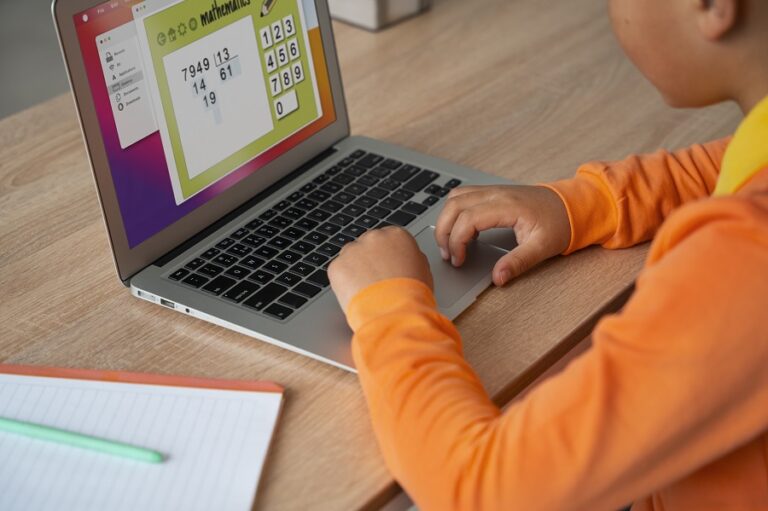Offline Learning Games for Students Without Internet Access
In today’s digital age, online learning tools and educational apps are everywhere. But not every student has access to reliable internet, especially in rural or underdeveloped areas. For these students, offline learning games can be a powerful way to continue education without depending on a Wi-Fi connection. These games not only make learning fun and engaging but also develop critical thinking, problem-solving, and communication skills.
This article explores the best offline learning games for students of all ages, focusing on options that don’t require internet access, expensive devices, or constant power supply. These games can be used at home, in classrooms, or community learning centers, making education accessible for everyone.
Why Offline Learning Games Matter
Many students around the world still lack access to fast or consistent internet. Even in places where schools provide computers or tablets, internet connectivity is often a challenge. Offline learning games offer several key benefits:
- They are accessible without internet or data plans
- They encourage hands-on, interactive learning
- They can be played anywhere, including rural homes and community centers
- They are cost-effective and easy to implement
- They support peer interaction and group activities
These games promote learning through fun, helping students grasp academic concepts while staying motivated and engaged.
Top Offline Educational Games for Students
- Scrabble or Word Tiles
Scrabble is a timeless word game that builds vocabulary, spelling, and strategic thinking. Even if you don’t have the official board, you can create homemade letter tiles using paper or cardboard. Students learn new words while competing with friends or family, improving both language and cognitive skills.
- Math Bingo
Bingo isn’t just for fun—it can be turned into an effective math practice tool. Instead of calling out numbers, use math problems (like 5 + 3 or 12 ÷ 4). Students mark the correct answers on their bingo cards. This game strengthens mental math skills and quick thinking in a competitive format.
- Flashcards
Flashcards are simple but powerful tools for learning vocabulary, math formulas, periodic table elements, or historical dates. They can be handmade with paper or card stock. Students can quiz themselves or play with peers, turning rote learning into an interactive experience.
- Memory Match
This game involves matching pairs of cards with related concepts—like capital cities and countries, synonyms and antonyms, or multiplication problems and their answers. It improves memory, concentration, and association skills. It’s especially effective for early learners.
- Educational Board Games
Board games like BrainBox, Monopoly (math edition), or even DIY versions of Trivial Pursuit can teach students about topics such as general knowledge, math, and science. These games require minimal setup and no internet, yet they offer hours of educational entertainment.
- Simon Says with Learning Objectives
This classic movement game can be adapted to teach. For example, instead of saying “Simon says touch your nose,” use “Simon says show a triangle” or “Simon says spell the word ‘apple’.” This works well for younger students and supports physical activity alongside learning.
- Puzzle Solving
Jigsaw puzzles enhance spatial awareness and problem-solving skills. Educational puzzles focusing on maps, human anatomy, or animals can teach while entertaining. You can even create simple paper puzzles by cutting out printed educational images.
- Storytelling Dice
Create or purchase dice with pictures on each side. Students roll the dice and use the images to create a story. This helps with creativity, language development, and narrative skills. The game can be played solo or in groups, making it a flexible learning tool.
- Role Play and Drama Games
Students can act out historical events, scientific processes, or vocabulary words. For example, one student might pretend to be a planet while others represent the sun and moon. These role-play activities make learning concepts more memorable and enjoyable.
- Chalkboard Games
A simple blackboard or whiteboard opens up countless learning game possibilities. Try drawing quick math races, spelling challenges, or Pictionary-style games to help students learn through visual interaction. These games require minimal materials but are highly effective in classroom settings.
Offline Educational Mobile Apps and Games
Some mobile apps work offline once downloaded. If students have access to smartphones or tablets but not the internet, these apps can be installed in advance:
- Khan Academy Kids (works offline after download)
- Math Kids – Math Games for Toddlers and Preschoolers
- Endless Alphabet (once downloaded, can be used offline)
- Duolingo (with pre-downloaded lessons)
- Toca Life World (educational and creative, works offline)
Parents or teachers can install these apps during internet availability, allowing students to access lessons later without connectivity.
Using Offline Materials Creatively
Offline learning doesn’t always need formal games. With a little creativity, teachers and parents can turn everyday activities into educational experiences:
- Cooking can teach measurements, fractions, and chemistry
- Gardening introduces biology, environmental science, and responsibility
- Walking in nature can lead to lessons on botany, weather, and geography
- Household chores can involve time management, sorting, and planning
These real-life learning games are not only educational but also practical and deeply rooted in everyday life.
How to Encourage Offline Learning at Home or School
- Set up a dedicated learning space with offline games, books, and materials
- Create a weekly game schedule to reinforce different subjects
- Encourage group games for social learning and teamwork
- Involve family members to build a supportive learning environment
- Rotate games to keep students curious and prevent boredom
Offline learning games require planning but can have long-term academic and social benefits.
Conclusion
Offline learning games are a lifeline for students without internet access. They transform education into a hands-on, fun, and engaging experience, regardless of location or resources. Whether it’s solving math puzzles, building vocabulary, or acting out stories, these games provide meaningful opportunities for students to learn and grow.
In a world increasingly driven by technology, it’s important not to overlook simple, effective, and low-tech solutions. Offline educational games ensure that every student—no matter where they are—has a chance to explore, understand, and enjoy learning.






